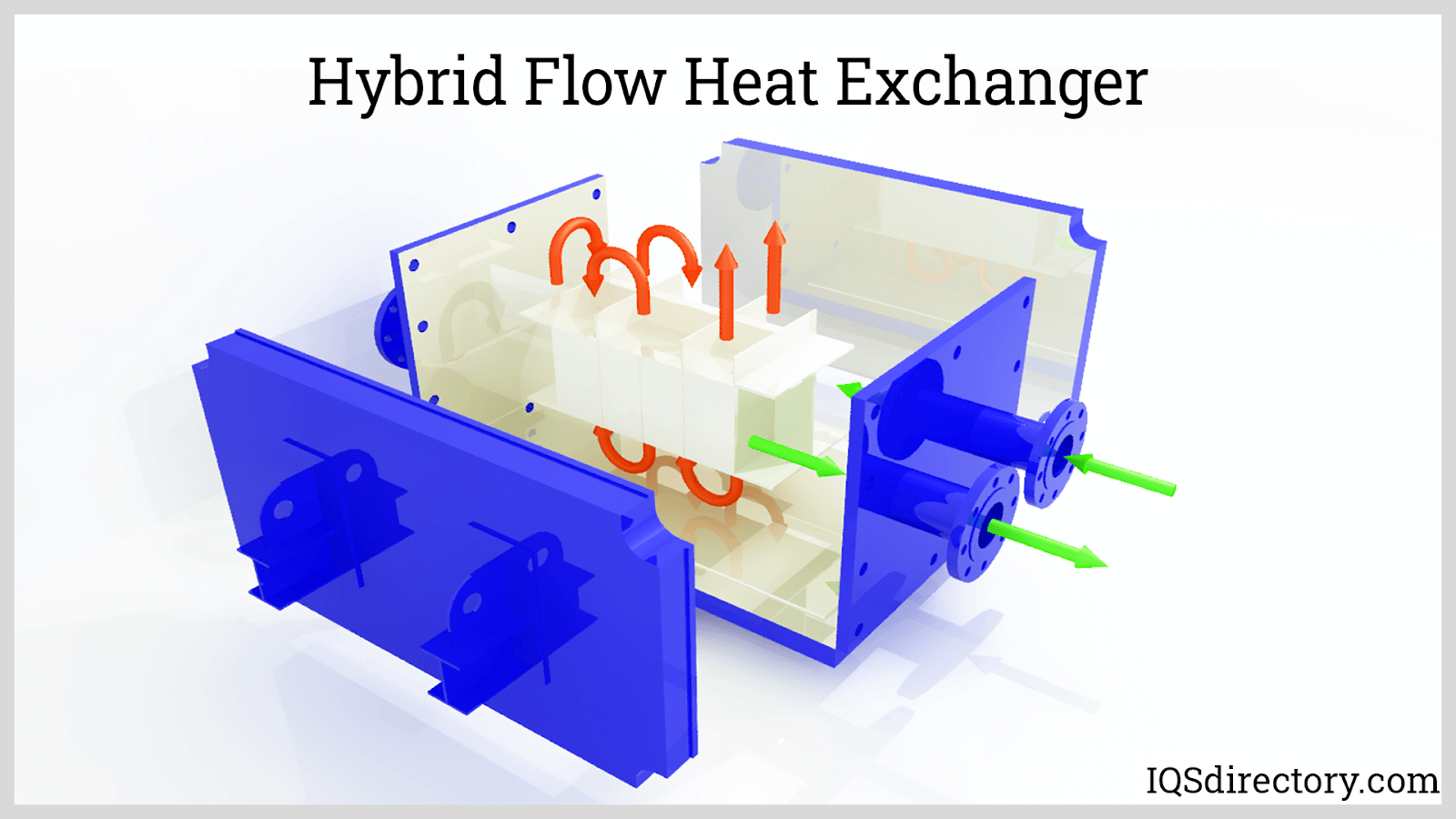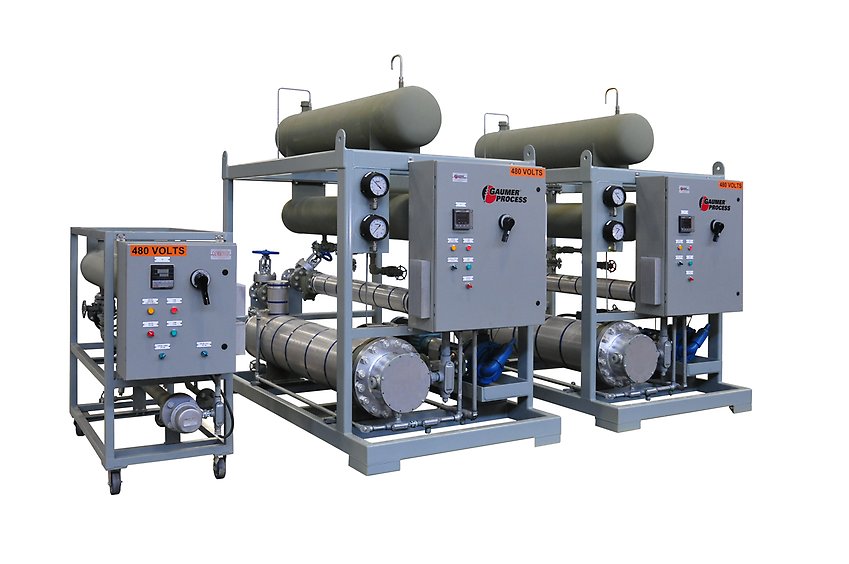Can DVS Heat Transfer Systems Help You Achieve Environmental Compliance Standards?
Wiki Article
The Function of Heat Transfer Equipments in Sustainable Power Solutions for the Future
Heat transfer systems are essential in the quest for sustainable power solutions. They optimize thermal power administration, enhancing the performance of sustainable modern technologies. By utilizing devices like conduction, convection, and radiation, these systems reduce power losses. Their function in solar thermal and geothermal applications is particularly substantial. As technologies emerge, the possibility for additional developments increases essential concerns regarding future energy approaches. What advancements will shape the landscape of lasting energy?Understanding Heat Transfer Equipments

The Significance of Thermal Energy Administration
Reliable thermal power management is necessary for making best use of power effectiveness and minimizing waste in numerous systems. By managing temperature level and optimizing Heat transfer procedures, organizations can substantially minimize energy intake and functional costs. Effective administration involves the execution of innovative modern technologies and methods that monitor and control thermal conditions within systems, guaranteeing that power resources are used effectively. Additionally, proper thermal energy administration adds to minimizing greenhouse gas exhausts, lining up with international sustainability goals. It also boosts system integrity and efficiency, bring about boosted product quality and longer tools life expectancy. Eventually, prioritizing thermal power management is a crucial step in the direction of developing extra sustainable power options and fostering a liable strategy to energy consumption in industrial and household contexts.Applications of Heat Transfer in Renewable Power
While numerous renewable resource resources guarantee sustainability, the efficient application of Heat transfer plays a vital duty in their effectiveness. In wind energy systems, Heat transfer is used for generator component air conditioning, boosting efficiency and longevity. Geothermal energy relies upon efficient Heat exchange in between the earth's subsurface and the fluid circulating in the system, taking full advantage of power extraction. Biomass power processes additionally gain from Heat transfer, as it helps in transforming organic products right into usable fuel with pyrolysis and gasification. Furthermore, in hydropower, keeping suitable temperature levels in tanks can enhance power outcome. Each of these applications demonstrates the essential importance of Heat transfer systems in boosting renewable resource innovations, ultimately contributing to a more lasting power future.Enhancing Solar Thermal Power Effectiveness
As solar thermal power systems continue to progress, boosting their efficiency has actually become essential for taking full advantage of energy output. Breakthroughs in Heat transfer innovations, such as improved thermal storage space products and ingenious Heat exchangers, play a considerable duty in enhancing performance. By using sophisticated materials that have remarkable thermal conductivity, systems can move and record Heat better. Additionally, integrating monitoring systems that adhere to the sunlight's course warranties that collectors obtain ideal solar direct exposure throughout the day. Using nanotechnology in solar absorbers can even more raise energy absorption rates. Integrating automatic control systems assists manage temperatures and take care of power distribution efficiently, leading to reduced losses and enhanced general system performance. These improvements lead the way for even more lasting solar thermal energy options in the future.Geothermal Home Heating: A Sustainable Option
Geothermal home heating offers a viable option for sustainable power, providing significant ecological advantages with minimized greenhouse gas discharges. Its efficiency and cost-effectiveness make it an attractive choice to traditional heater. Challenges related to application needs to be dealt with to optimize its prospective effect.Ecological Advantages of Geothermal
Traditional heating techniques contribute significantly to greenhouse gas exhausts, geothermal heating presents a compelling alternative that decreases ecological effect. By utilizing the Planet's interior Heat, geothermal systems make use of an eco-friendly energy resource, significantly decreasing reliance on nonrenewable fuel sources. This technique creates minimal carbon exhausts, making it a cleaner option for domestic and business heating. In addition, geothermal systems advertise energy performance, as they call for much less energy compared to standard furnace. DVS Heat Transfer Systems. The utilization of geothermal energy likewise aids in reducing air pollution, improving regional air top quality and public health and wellness. As DVS Heat Transfer Systems a lasting solution, geothermal heating sustains climate adjustment reduction initiatives, positioning itself as a crucial part in the shift towards a greener futurePerformance and Cost-Effectiveness
Exactly how does geothermal heating determine up in terms of effectiveness and cost-effectiveness compared to traditional heater? Geothermal home heating demonstrates superior performance, typically achieving a coefficient of efficiency (COP) of 3 to 5, indicating it produces 3 to five systems of Heat for each system of electrical power eaten. This efficiency converts into reduced operating costs, especially in areas with stable geothermal resources. Initial installment prices can be more than standard systems; however, lasting savings on energy bills and minimized upkeep expenses can balance out these in advance financial investments. Additionally, several federal governments incentivize geothermal systems with refunds and tax debts, boosting their cost-effectiveness. Overall, geothermal home heating emerges as a sustainable and financially viable option to more traditional home heating services.Application Difficulties and Solutions
Various difficulties can impede the extensive execution of geothermal heating unit, despite their clear advantages as a lasting power option. High first setup prices frequently deter property owners and capitalists, making financing a considerable barrier. Additionally, the geographical restrictions of appropriate geothermal sites restrict ease of access in specific areas. Neighborhood regulations and permitting processes can additionally complicate job development, causing hold-ups. Public awareness and understanding of geothermal systems continue to be reduced, hindering acceptance. To resolve these difficulties, targeted education projects can enhance open secret, while federal government motivations might relieve monetary concerns. Collaborating with regional authorities to improve laws might facilitate smoother task approvals, ultimately advertising the fostering of geothermal home heating as a sensible, lasting power alternative.Advancements in Heat Transfer Technologies
Technologies in Heat transfer modern technologies play an essential duty in enhancing energy performance and sustainability. Advanced Heat exchangers and phase change products are at the center of these developments, using significant improvements in thermal monitoring. These innovations not just optimize energy usage however additionally add to decreasing ecological impact in different applications.Advanced Heat Exchangers
Advanced Heat exchangers play a vital duty in improving energy effectiveness throughout numerous applications in lasting energy services. These gadgets help with the transfer of Heat in between 2 or even more liquids, noticeably reducing energy consumption in processes such as industrial heating, cooling, and power generation. Advancements in products and layout, such as making use of nanofluids and compact arrangements, have led to improved thermal performance and decreased size demands. Furthermore, developments in digital surveillance and control systems permit optimized procedure, more raising performance. By minimizing waste Heat and taking full advantage of energy healing, progressed Heat exchangers contribute to lower carbon footprints and sustain the change towards eco friendly modern technologies. Their proceeded advancement is important for accomplishing global energy sustainability objectives.
Stage Modification Materials
The integration of stage adjustment products (PCMs) into Heat transfer modern technologies stands for a considerable improvement in energy management and efficiency. PCMs absorb and launch thermal energy during their phase adjustments, making it possible for efficient temperature regulation in structure materials and power systems. By keeping excess Heat throughout top periods and launching it when need increases, PCMs add to fill changing and power conservation - DVS Heat Transfer Systems. This capacity improves the performance of eco-friendly energy systems, particularly in solar thermal applications. Additionally, PCMs can improve the thermal convenience of indoor environments, lowering reliance on standard home heating and cooling down methods. As technologies in PCM formulas remain to emerge, their duty in sustainable power options is poised to grow, offering appealing avenues for future research study and application
Future Leads for Heat Transfer in Lasting Energy
As the demand for sustainable power remedies remains to increase, the duty of Heat transfer systems is becoming increasingly important fit future modern technologies. Innovations in layouts and materials are expected to enhance efficiency in Heat transfer, lowering power losses in various applications. The integration of innovative thermal storage space systems, such as phase adjustment products and thermochemical storage, will certainly make it possible for far better monitoring of power sources. Research right into nanofluids and biomimetic Heat exchangers may better enhance thermal performance. Additionally, the adoption of clever innovations will certainly enable for real-time monitoring and flexible control of Heat transfer procedures. These advancements are positioned to significantly contribute to the general effectiveness and sustainability of power systems, leading the way for a more energy-efficient future.Frequently Asked Concerns
How Can People Implement Heat Transfer Equipment in your home?

People can implement Heat transfer systems in your home by mounting energy-efficient home appliances, making use of radiant home heating, and optimizing insulation. These steps boost energy efficiency, decrease prices, and promote sustainable methods in residential environments.

What Are the Expenses Connected With Setting Up Heat Transfer Solutions?
The costs associated with mounting Heat transfer systems vary widely, generally incorporating devices, installation labor, and upkeep. Aspects such as system type, home dimension, and neighborhood policies greatly affect the general expenditure entailed.Are There Federal Government Rewards for Heat Transfer System Installations?
Government rewards for Heat transfer system installments vary by area and can consist of tax gives, credit reports, and discounts. These monetary benefits intend to motivate fostering, inevitably promoting power efficiency and lowering environmental effect within areas.How Do Heat Transfer Equipments Effect Power Bills?
Heat transfer systems especially affect energy expenses by maximizing power efficiency. By boosting the transfer of Heat, these systems decrease energy intake, leading to lower utility expenses and producing an extra sustainable technique to power monitoring.What Maintenance Is Required for Heat Transfer Systems?
Maintenance for Heat transfer systems includes regular evaluations, cleaning of elements, examining liquid degrees, making certain proper insulation, and replacing worn components. These jobs aid keep performance, prevent breakdowns, and prolong the system's operational lifespan.These systems help with the motion of thermal power from one tool to one more, enabling the transfer of Heat for air conditioning, home heating, or energy generation objectives. Geothermal power depends on efficient Heat exchange between the planet's subsurface and the liquid distributing in the system, maximizing power removal. Additionally, geothermal systems promote power performance, as they need less energy contrasted to standard heating systems. Advanced Heat exchangers play an important function in enhancing power performance throughout various applications in lasting power services. Heat transfer systems especially affect power costs by maximizing energy efficiency.
Report this wiki page